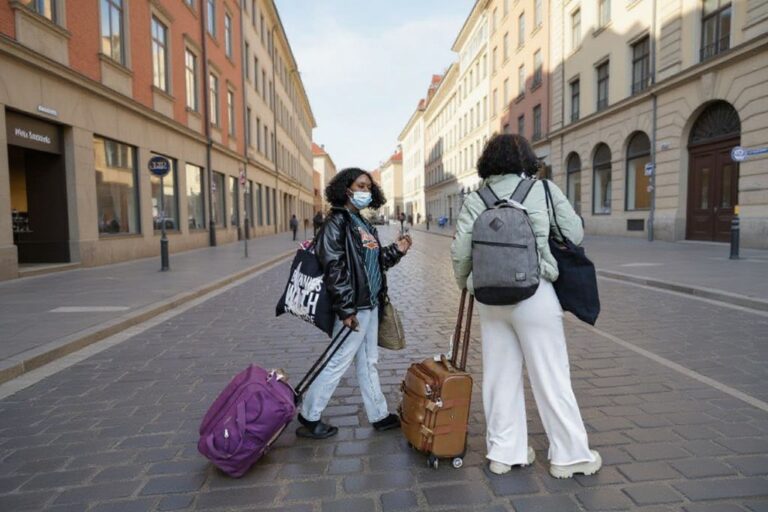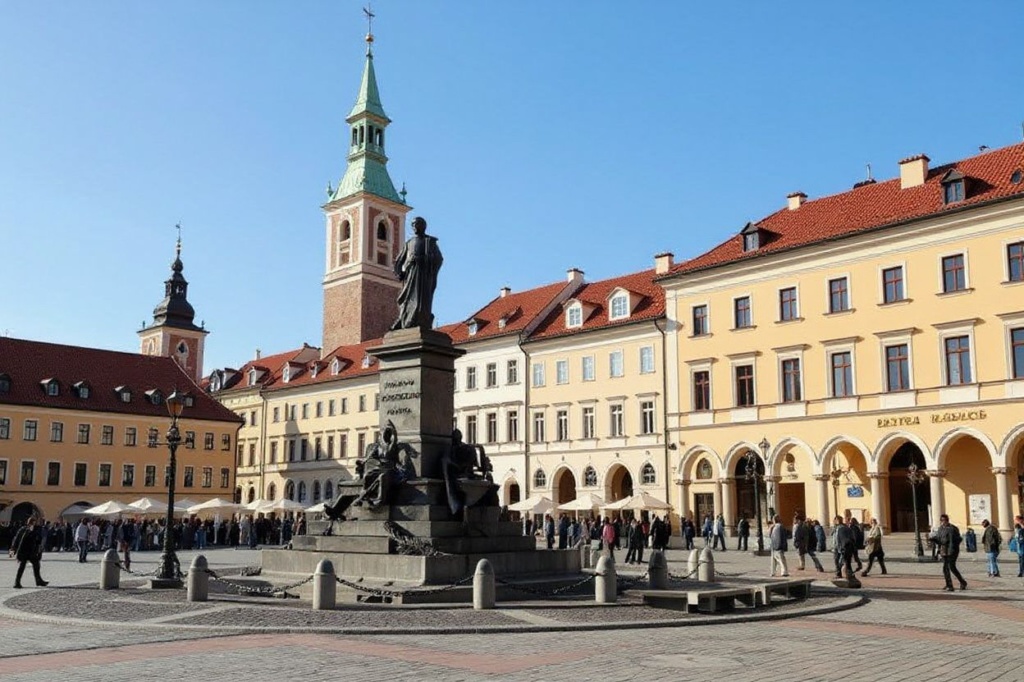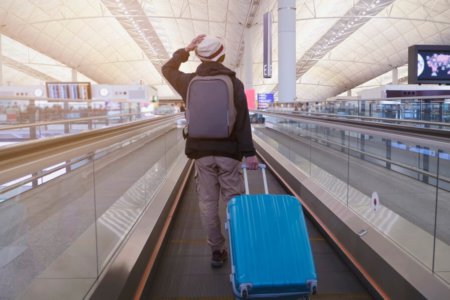
No money does not mean no travel. This applies even those studying in the UK and feeling their pounds getting fewer as the country’s inflation rate peaked at 11.1% according to the latest Consumer Price Index. You can even travel during Christmas too — if you know where to look.
The frugal traveller will still be able to explore the finest the UK and Europe have to offer, including its wintry wonderlands, famous Christmas markets and other glorious sights.
But there’s work to do first. To afford more expensive prices, you’ll need to spend more time planning and finding thrifty strategies. Here are the top tips you should know before you book your flights, tickets and accommodation:
 Krakow is one of the cheapest cities in Europe to visit.
Krakow is one of the cheapest cities in Europe to visit.
6 ways to travel Europe without breaking the bank
1. Sign up for price alerts
Let’s get some myths out of the way: searching for flights incognito, clearing the cookies on your browser or booking your flights on a specific day will not help you to secure the cheapest flights.
Consider using the Skyscanner price alerts feature to track flight fares. Set the alerts for your preferred destinations and dates so you’ll receive an email or push notifications whenever prices go down or up — ensuring that you receive the best deals.
Make sure you check at least twice a day. Deals don’t last long so snap them as soon as they’re launched.
2. Take the bus or train
Instead of flying, the bus and train are cheaper modes of transportation that will allow you to stretch your tight student budget.
Companies like Flixbus have disrupted the industry, offering fares as low as five euros for a one-way trip. Most of these companies also operate on an app that will allow you easily track your bookings, the best deals and bus schedules. Ultimately, bus fares are easy to cancel, and there’s almost always a spot available.
While the train is slightly more expensive, it offers a more scenic ride. Book your tickets and look on the provider’s website for any promotions they run (especially when Christmas is right around the corner).
3. Search for budget accommodations
Did you know that Europe is packed with budget hostels catered to backpackers? They range from US$5 to US$30 a night. Hostels in Eastern Europe can go as low as US$10.
HostelWorld is a reliable site for you to source cheap accommodation options. Always read reviews for every hostel, view traveller pictures of the place and pick a spot near the city centre for safety and comfort.
If you are feeling adventurous, try Couchsurfing. This online platform allows locals to offer their couches and spare beds to travellers for free. Again, similar tips apply.
 Walk as you travel to soak in the sights.
Walk as you travel to soak in the sights.
4. Walk whenever possible
Consider walking if your destination is close enough. You’ll not only get to exercise but also have the chance to immerse yourself and be present in a new city. Walking lets you discover hidden parts of a place that a car, bus or train will miss. The best part? It’s free.
If walking is impossible, the local bus or tram is always cheaper than a taxi. You can still interact with the locals while you travel too.
5. Making the most out of free activities
Always Google for a list of free things to do in a specific country so you can know what to do for little money in a foreign country.
Many European cities offer free walking tours. Travellers like Curiously Erin break down the best free walking tours you can do in Europe. Your student ID card is also helpful in securing discounts and free visits. For example, students can visit the Musée du Louvre in France for free.
In Italy, you can visit the Colosseum and Roman Forum in Rome, as well as the Uffizi Gallery or Michaelangelo’s David in Florence for free on the first Sunday of every month.
6. Saving money on food and drinks
When in Europe, do as the locals do. Nothing beats a meal cooked from ingredients shopped at the local food market. They are more affordable than eating out in restaurants.
Picture enjoying a bowl of cheese as you picnic in front of the Eiffel Tower or any central park or monuments. Or seek out authentic local restaurants by asking the locals.
Not into picnicking? Eat at local sandwich shops, pizza parlours, Maoz, Wok to Walks, and outdoor street vendors.










